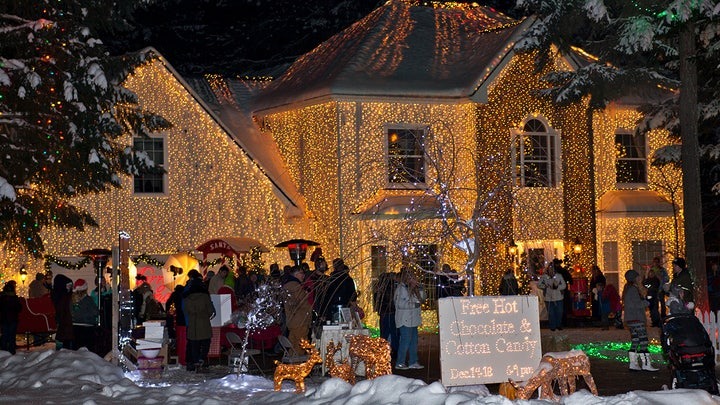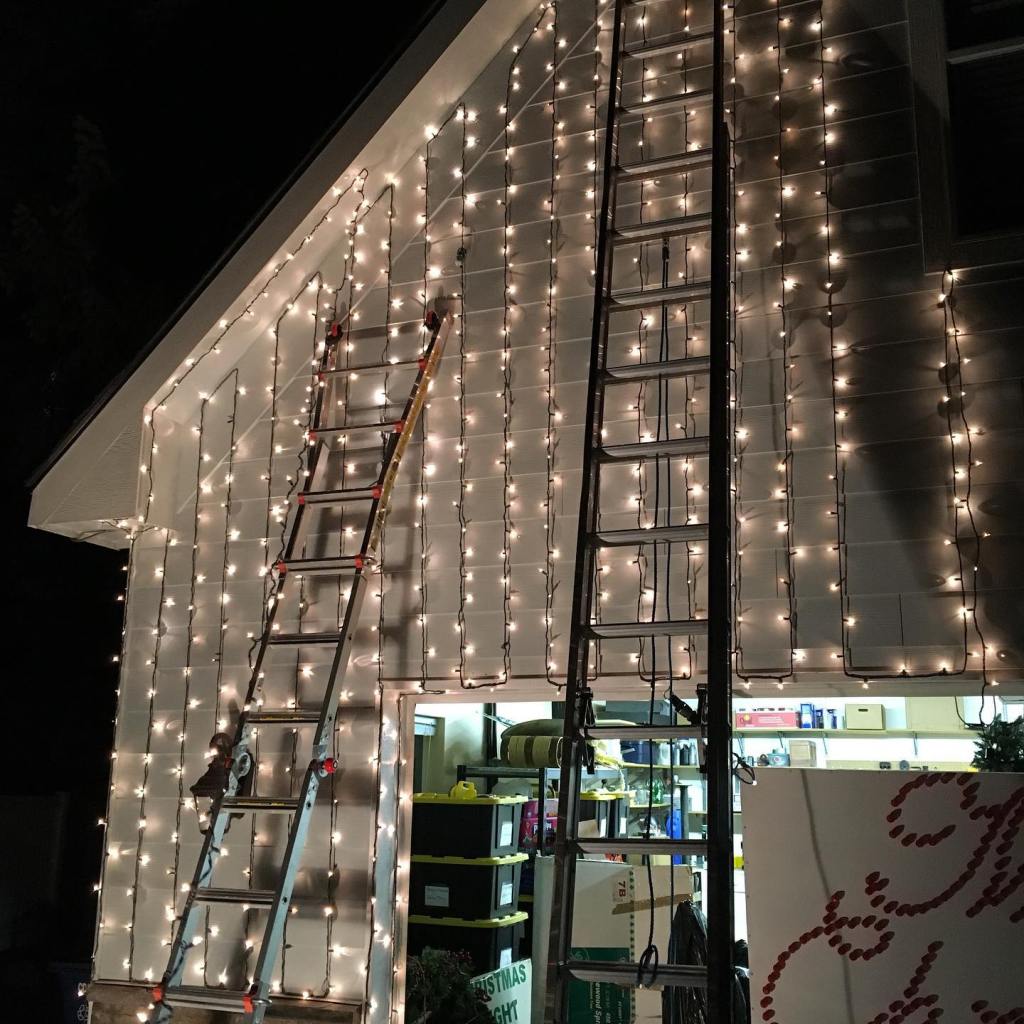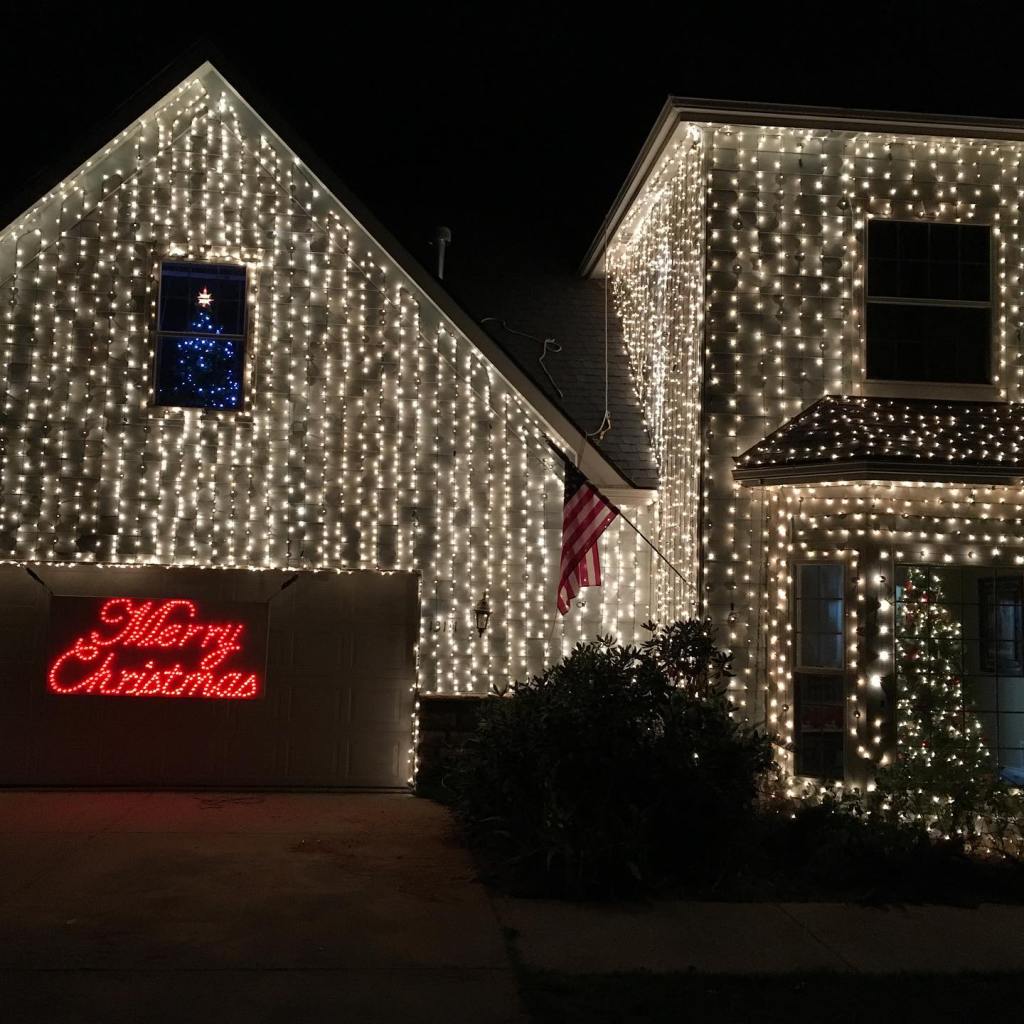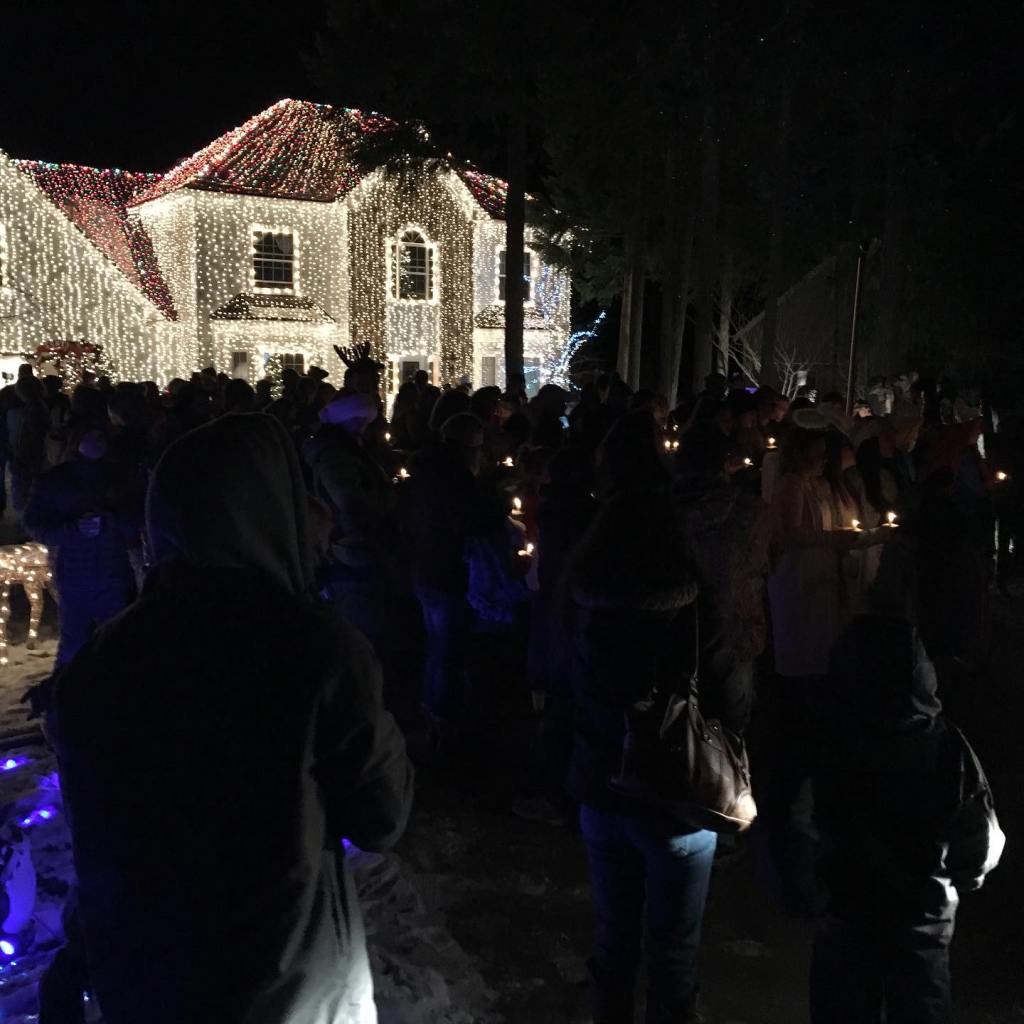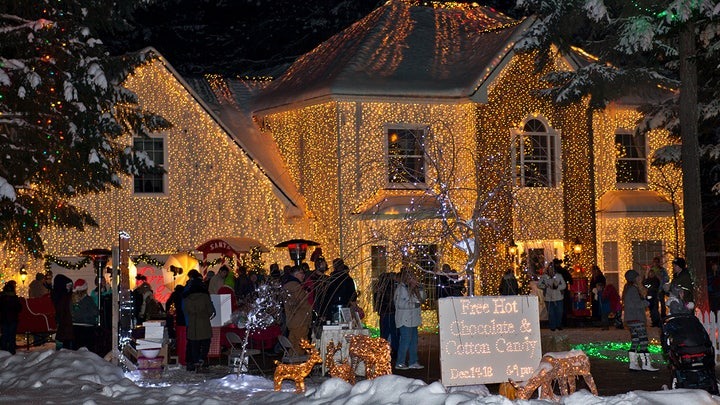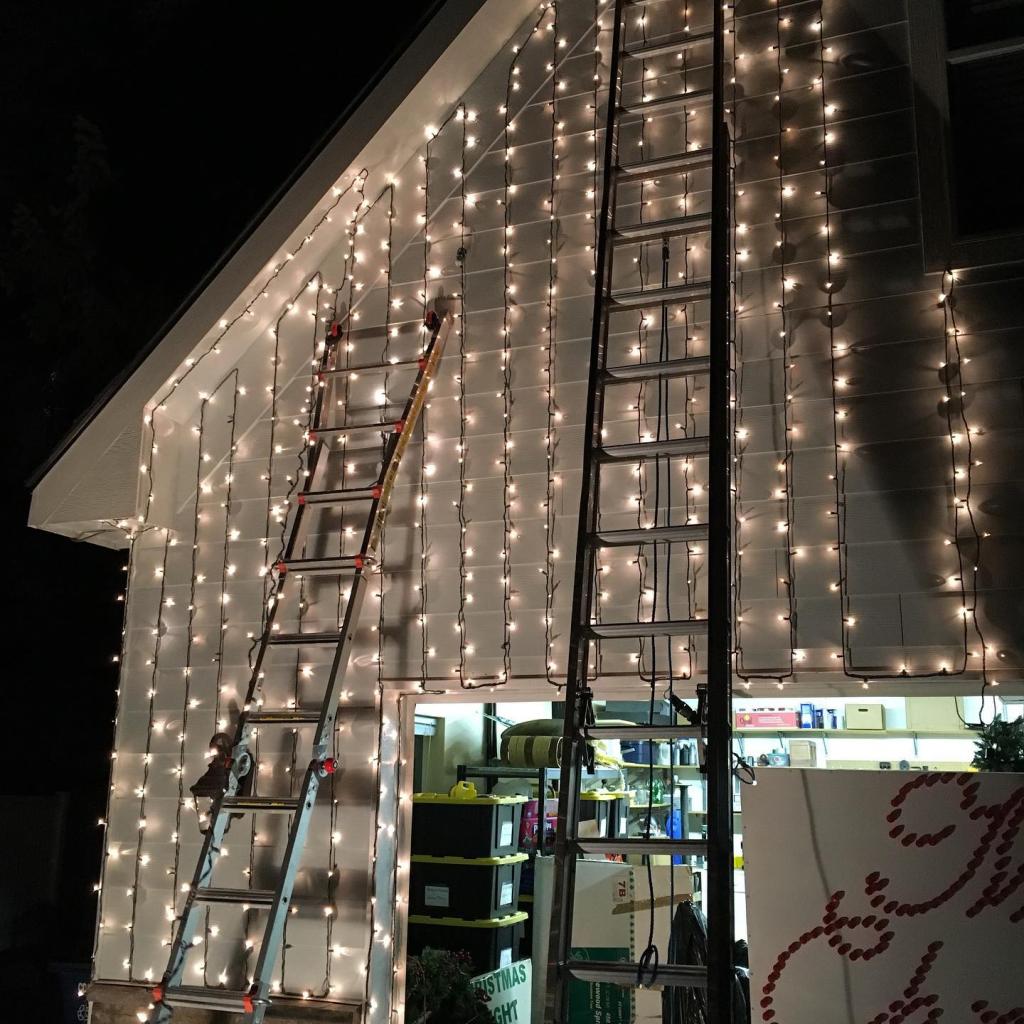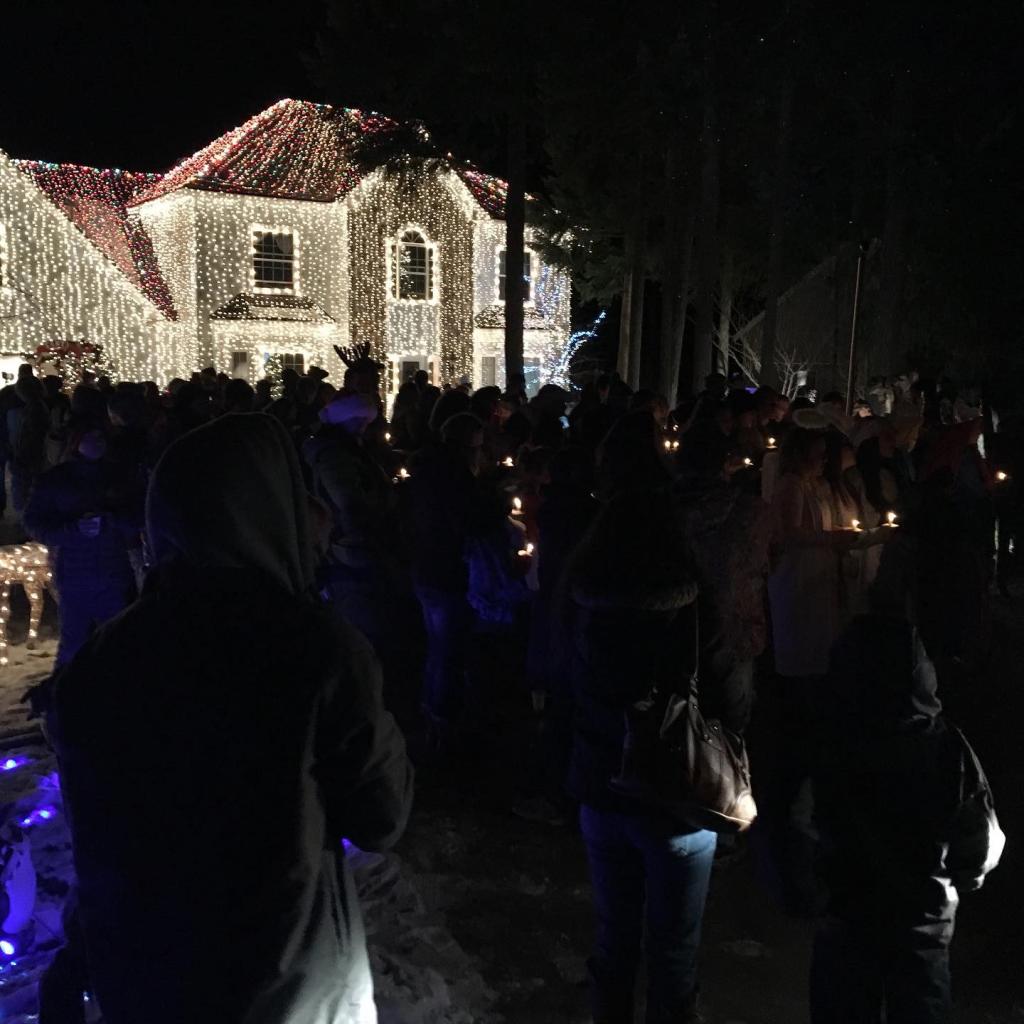‘Christmas Lawyer’ Jeremy Morris eyes Supreme Court review in battle with HOA over holiday light show
The battle between a man who orchestrated massive Christmas extravaganzas and his former homeowners association could be appealed to the Supreme Court after a lower court issued its long-awaited ruling.
“It was made clear that a jury could find … that there was a hostile atmosphere created, that our family was discriminated against,” Jeremy Morris told Fox News Digital of the ruling.
Morris, an attorney, became popularly referred to as the “Christmas Lawyer” after gaining international notoriety for throwing a five-day holiday light show that drew thousands of revelers to his former home just outside of Hayden, Idaho.
In 2017, a jury unanimously agreed that his HOA discriminated against him on the basis of religion by trying to stop his Christmas show.
But in a stunning twist, a federal judge reversed that verdict and ordered Morris to pay the HOA more than $111,000 in legal fees.
Morris challenged the ruling in the 9th Circuit Court of Appeals, which heard arguments in June 2020.
Four years later, a three-judge panel ruled in the HOA’s favor in part and in Morris’ favor in part, teeing the case up for a new jury trial.
But Morris said he is “absolutely” considering appealing to the Supreme Court first.
How the Christmas light fight began
Morris made an offer on his house just after throwing his inaugural light show at his previous home over Christmas 2014.
He informed the West Hayden Estates homeowners association that he planned to repeat the event and the HOA immediately tried to squash the Christmas display, arguing it would likely violate three sections of the community’s covenants, conditions and restrictions.
The event would be too big, too noisy and too bright, the board wrote in a letter sent to Morris in January 2015.
Crucially, the letter also pondered whether “non-Christians” would be bothered by the display and expressed concerns that the show would draw “possible undesirables” to the neighborhood.
Morris wrote back, arguing that there was nothing applicable to his event in the CC&Rs and that the board was engaging in religious discrimination. His family closed on the house and moved in.
When Morris started decking his house with around 200,000 individual lights that fall, the HOA’s attorney sent him a letter threatening legal action if he hosted the event without approval from the board.
The show went on anyway. Costumed characters, musicians, a children’s choir, a live nativity scene and even a camel greeted spectators.
Morris rented shuttle buses to carry visitors to the event, and volunteers directed cars through the streets around the house, according to court documents.
Tensions grew leading up to the Morris family’s next show.
Neighbors were accused of harassing spectators.
A bus driver said one resentful resident repeatedly tried to stage an accident when shuttles passed by.
Morris said his family received threats, including an in-person confrontation partially caught on camera in which a neighbor offered to “take care of him.”
Morris previously told Fox News Digital that he didn’t want to take legal action and that he offered to waive his rights to proceed with a lawsuit if the HOA agreed to leave his family alone.
The HOA refused, he said, and the statute of limitations was almost up on the original letter.
Jury unanimously sided with Morris in discrimination lawsuit, but judge flipped the verdict
Morris sued in January 2017, alleging religious discrimination in violation of the Fair Housing Act. A jury unanimously sided with him and ordered the HOA to pay $75,000.
But Judge B. Lynn Winmill took the unusual step of flipping the verdict and ordering Morris to pay the HOA’s legal fees, concluding the case wasn’t about religious discrimination, but rather the Morris family’s violation of neighborhood rules.
Start and end your day informed with our newsletters
Morning Report and Evening Update: Your source for today's top stories
Thanks for signing up!
The judge’s order also permanently banned the Morris family from holding another Christmas program that violated the HOA rules, now a moot point since they have moved out of Idaho.
The Morris family appealed, and in June 2020, their case went before the 9th Circuit.
9th Circuit Court of Appeals says letter didn’t break the law, but that HOA may have created a hostile environment
Now, four years later, a three-judge panel affirmed Winmill’s overturning of the jury verdict, concluding that a reasonable jury should not have found the HOA letter from 2015 indicated a preference that a “non-religious individual” buy the Morrises’ home.
But the panel also found that there was enough evidence supporting the jury’s conclusion that the HOA board’s “conduct was motivated at least in part by the Morrises’ religious expression,” according to the more than 100-page ruling.
The panel’s decision was split, with a lengthy dissent from Judge Daniel P. Collins, who suggested the HOA’s behavior was more consistent with making the Morris family “unwelcome” than with enforcing rules.
Collins suggested that the board’s action also contributed to harassment toward the Morrises by other residents, physical confrontations and a death threat.
The HOA “categorically denies it interfered with the Morrises’ right to purchase and enjoy their home free from discrimination” and “has always strived to foster an inclusive and welcoming environment for all residents,” its attorney, Peter Smith, wrote in an email to Fox News Digital.
“We look forward to the opportunity to demonstrate in court that the Association acted legally,” Smith continued. “We are confident that the legal proceedings will ultimately vindicate the Association and show that it has not created a hostile neighborhood for the Morrises.”
“We can retry the case … and I do believe that we would win as we did before,” Morris told Fox News Digital.
But he said the 9th Circuit’s ruling regarding the letter sets a concerning precedent and suggested the outcome would have been different if “non-Christian” was replaced with any other faith.
“If we were to strictly interpret this decision, people of any faith can be discriminated against. You can admit that you’re discriminating against them,” he said. “We all know that no court would do that, but a court just made it clear you can do that to a Christian.”
He added that, “Christians are no longer in the United States given the same property rights as other people.”
The Supreme Court is asked to review more than 7,000 cases each year and usually agrees to hear fewer than 100.
Separate suit planned against Idaho State Bar
Morris also told Fox News Digital he is moving to sue the Idaho State Bar for an alleged “shakedown” last year, which he compared to mob tactics.
Representatives of the Idaho State Bar scrutinized comments Morris made about the judge who overturned his case — including that he was “corrupt” and an “anti-Christian bigot” who attempted to “rig a jury.”
The bar threatened to pursue disciplinary charges under Idaho’s professional conduct rules, but offered to dismiss the case if Morris gave up his Idaho legal license, according to correspondence shared with Fox News.
Bar counsel noted that Morris has moved out of state and the pending “disciplinary grievance” has affected his ability to gain employment in his new home.
Morris says he has notified the bar that he plans to sue for $10 million.
A representative of the Idaho State Bar declined to comment on potential litigation. The spokesperson also declined to comment on Morris’ possible disciplinary actions other than to say that no formal case has been filed.









